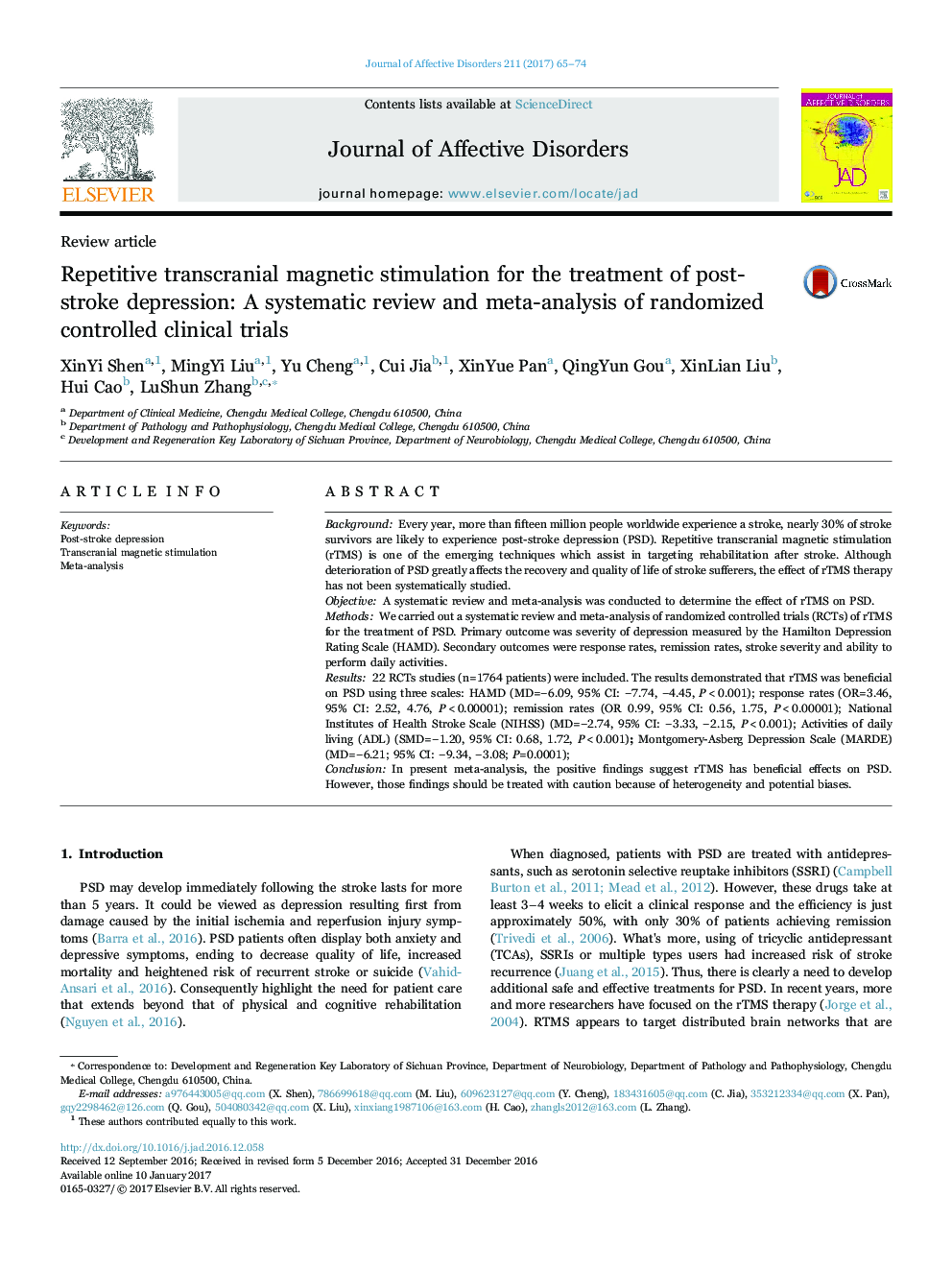| کد مقاله | کد نشریه | سال انتشار | مقاله انگلیسی | نسخه تمام متن |
|---|---|---|---|---|
| 5721906 | 1608114 | 2017 | 10 صفحه PDF | دانلود رایگان |
- This review provides comprehensive evidence of the efficacy of rTMS for PSD.
- RTMS improves depression, response rates, stroke severity and activities of daily living in PSD.
- No significant difference between two groups with respect to remission rates.
BackgroundEvery year, more than fifteen million people worldwide experience a stroke, nearly 30% of stroke survivors are likely to experience post-stroke depression (PSD). Repetitive transcranial magnetic stimulation (rTMS) is one of the emerging techniques which assist in targeting rehabilitation after stroke. Although deterioration of PSD greatly affects the recovery and quality of life of stroke sufferers, the effect of rTMS therapy has not been systematically studied.ObjectiveA systematic review and meta-analysis was conducted to determine the effect of rTMS on PSD.MethodsWe carried out a systematic review and meta-analysis of randomized controlled trials (RCTs) of rTMS for the treatment of PSD. Primary outcome was severity of depression measured by the Hamilton Depression Rating Scale (HAMD). Secondary outcomes were response rates, remission rates, stroke severity and ability to perform daily activities.Results22 RCTs studies (n=1764 patients) were included. The results demonstrated that rTMS was beneficial on PSD using three scales: HAMD (MD=â6.09, 95% CI: â7.74, â4.45, P<0.001); response rates (OR=3.46, 95% CI: 2.52, 4.76, P<0.00001); remission rates (OR 0.99, 95% CI: 0.56, 1.75, P<0.00001); National Institutes of Health Stroke Scale (NIHSS) (MD=â2.74, 95% CI: â3.33, â2.15, P<0.001); Activities of daily living (ADL) (SMD=â1.20, 95% CI: 0.68, 1.72, P<0.001); Montgomery-Asberg Depression Scale (MARDE) (MD=â6.21; 95% CI: â9.34, â3.08; P=0.0001);ConclusionIn present meta-analysis, the positive findings suggest rTMS has beneficial effects on PSD. However, those findings should be treated with caution because of heterogeneity and potential biases.
Journal: Journal of Affective Disorders - Volume 211, 15 March 2017, Pages 65-74
